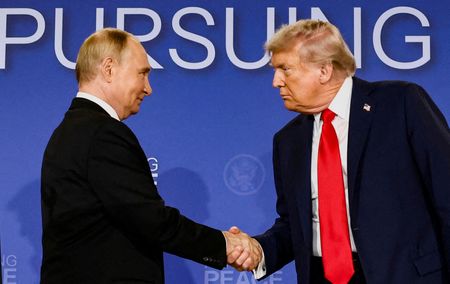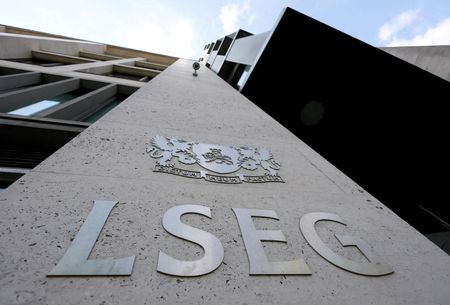By David Milliken
WASHINGTON (Reuters) -Britain wants to see more investment in the country by pharmaceutical companies if it agrees to pay higher drug prices as part of tariff talks with the United States, finance minister Rachel Reeves said on Thursday.
Britain and the United States have been negotiating on drug pricing as London seeks a preferential outcome on pharmaceutical tariffs in trade talks with Washington.
Reeves said the government was working “very closely” with the pharmaceutical industry and the United States in relation to talks to secure lower tariffs for the sector, but acknowledged their businesses’ concerns about the low prices paid for drugs by Britain’s public health service and other issues.
BRITAIN WANTS DRUG COMPANIES TO INVEST MORE
“We do need to make sure that we are an attractive place for pharmaceuticals, and that includes on pricing, but in return for that, we want to see more investment flow to Britain,” Reeves told reporters in Washington where she is attending meetings of world finance officials.
“We’ve been very successful with the U.S. in terms of negotiating lower tariffs … and of course, we want that to be the case with pharmaceuticals as well. But we are in the middle of those negotiations at the moment.”
U.S. President Donald Trump has pressured Europe to pay more for U.S. drugs and major pharmaceutical companies have halted investments in Britain, citing a difficult operating environment.
Britain achieved a partial tariff deal with the United States in May, which included a commitment to reach a preferential outcome on pharmaceuticals as Britain pledged to try to “improve the overall environment” for firms.
Trump has floated a new 100% tariff to apply to firms unless they build a manufacturing presence in the U.S.
Britain’s science minister Patrick Vallance has acknowledged that the country’s National Health Service needed to reverse a trend of declining spending on medicines.
Reeves also said China’s move to tighten its export controls on rare earths was the “wrong decision”, after Beijing restricted exports of a range of processing and manufacturing technology.
“I think that is dangerous for the global economy,” she said, while welcoming moves by Canada and the United States to improve the security of critical mineral supplies.
(Reporting by David Milliken in Washington, Writing by William James and Alistair Smout, editing by William Schomberg, Louise Heavensand Tomasz Janowski)











